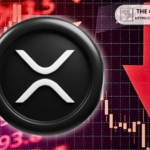Bitcoin (BTC) prices fell suddenly yesterday, June 12th, below $104,000.
Furthermore, the Israeli government declared a state of national emergency and justified its actions as a “preventive response” to Iran’s impending nuclear weapons.
This episode has been one of the biggest military tension moments in the Middle East in recent years. As always with events of this nature, the market responded to uncertainty. And Bitcoin, where many still consider “risk” assets, was no exception.
But what does Bitcoin have to do with the conflict between Israel and Iran? The short answer is: More and more. What began as a Cypherpunk experiment in 2008 is one of the 10 most valuable assets on the planet, as you can see in the following image.
This meteor rise was no coincidence. Over the past five years, Bitcoin has been adopted by governments and individuals seeking to protect their assets from institutional funds, companies cited in the stock market, and inflation or state control. Signatures such as BlackRock, Fidelity, Strategy have accumulated a significant amount of BTC, and countries such as El Salvador have declared fiat currency.
With this increase in adoption, there are unavoidable consequences. Bitcoin’s price behavior is, at least in part, similar to the prices of other traditional financial assets. In other words, in the short term, an action, bond, or merchandise: fear, risk aversion, and shock External.
The market response was immediate as something happened in the Middle East last night. Bitcoin is well below $104,000. because? This is because investors tend to remove assets that are considered “risk” in favor of more traditional shelters by detecting an increase in global uncertainty. And as his story “Digital Gold”, Bitcoin has not yet integrated its roles of most market actors. Finance.
Bitcoin’s double dimension
Bitcoin lives in a double dimension. On the one hand, its decentralized nature, its offering is limited to 21 million units, and its resistance to censorship and its absolute portability make it an ideal shelter for value in times of crisis. It is not dependent on the central bank, and cannot be printed freely or easily confiscated. In the long run, this will become a natural gold competitor.
But on the other hand, its short history, its volatility, and speculative behaviour in bullish and bassist cycles, as cryptographically explains several times, still today, many view it as risky assets. That is, when war breaks out, when banks fall, or when the economy slips, many instincts are trader I sell it first and ask later.
This is exactly what we saw in Israel’s attack on Iran. Bitcoin is not because his network is at risk, but because it is directly linked to conflict, A key part of the market still recognizes it as a casino cardin an interconnected, nervous global economy.
But not everything is pessimism. Throughout its history, Bitcoin has demonstrated its unique ability to adapt, learn and mature. With each traditional market facing a long-term crisis, Bitcoin shows that it could be something different.
The “digital gold” narrative will be strengthened as more individuals, institutions and governments understand Bitcoin’s operations and integrate it into reserves. And at some point, it will come when the market will no longer consider Bitcoin as a risky asset and start treating him truly as his: A value reserve of the 21st century.
That separation process is not automatic, not total. But we are already seeing signs. In previous voltage episodes, Bitcoin had a variety of actions. Sometimes it falls along with the action, but sometimes it acts as a shelter or quickly recovers.
The world of 2025 is characterized by a global economy of polarization, geopolitical tensions and transformation. The digitalization of money is inevitable, and Bitcoin has an increasingly relevant role as an open, transparent, and inoperable financial system.
The price decline in military escalation is consistent with its long-term paper. On the contrary, it shows it We are still in the transition phase where old financial logic is living in a new way of understanding value.rarity and economic freedom.
What’s important is not punctuality in the face of a crisis, but a general trend. And that trend is clear when you’re away from the noise of everyday life. Bitcoin is increasingly present in global debates about money, sovereignty and the future.






